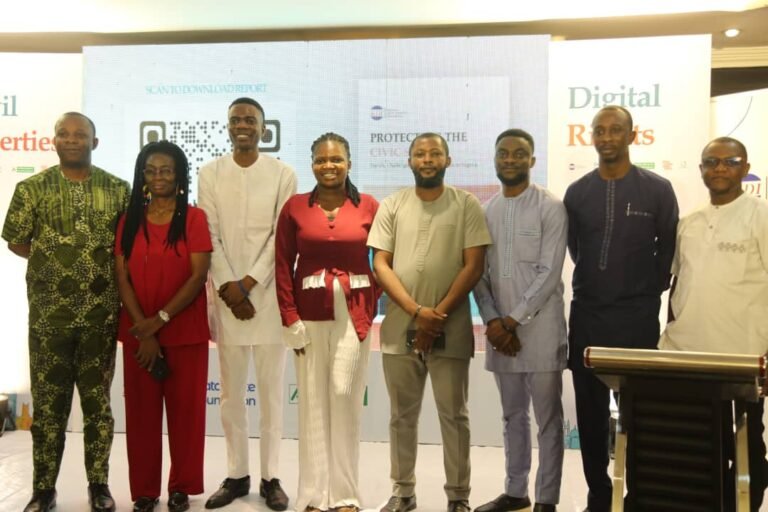Newspapers in Nigeria provided minimal coverage of civic space attacks, especially issues like threats, online attacks and forced disappearance, a new report has revealed.
The report also indicated that topics like misinformation and disinformation also received sparse coverage.
The report covered other serious ramifications of “forced disappearance” and “online attacks,” where the press, on one hand, is a guardian of truth, and on the other hand, a target of state suppression.
Through a comparative analysis of the coverage of civic space threats among five National Newspapers in Nigeria – Tribune, Leadership, Guardian, Daily Trust, and THISDAY, this report aims to shed light on the varying degrees of attention these topics receive across different newspapers, emphasising the pivotal role media plays in shaping societal narratives and influencing broader context of civil liberties and human rights.
The Programme Officer of Dataphyte, Funmilayo Babatunde, stated this on Saturday in Abuja while giving an overview of the report at a “Multi-Stakeholder Policy Dialogue on Effect of Insecurity on Civic Space”, sponsored by Dataphyte Foundation, Action Group on Civic Space, The Fund for Global Human Rights, and Space for Change (S4C), while giving an overview of the report.
She said in recent years, the coverage of various societal issues by newspapers had taken on increasing significance, particularly in contexts where the integrity of democratic institutions and the safety of civic space actors are in jeopardy.
Babatunde added that the report examined a series of critical themes reflected across five Nigerian newspapers, focusing on the nuanced treatment of issues and topics such as “attacks on institutions,” “legal harassment,” “misinformation and disinformation,” “Censorship,” and “Physical Violence,” among others.
She added that the research was conducted to analyse and understand the patterns, frequency, and nature of reported attacks on civic space actors, including journalists, particularly focusing on incidents documented during conflicts, protests, and demonstrations.
Babatunde stressed that the research utilises randomly sampled data from five newspapers, with a sample size of 274.
She noted: The comparative analysis of newspaper coverage reveals significant disparities in the emphasis placed on various societal issues.
“Notably, Tribune dedicates 33.3 per cent of its articles to physical violence, reflecting a strong editorial commitment to reporting safety and security issues.
“Leadership focuses 27.8 per cent of its coverage on legislation and policies, underscoring its role in informing the public about governmental actions.
‘Guardian leads with 76.9 per cent of its articles on physical violence, highlighting its commitment to addressing violence-related concerns.
“Daily Trust balances its coverage with 58.7 per cent of articles on physical violence and notable attention to social unrest (10.7 per cent).
“THISDAY prioritises legislation and policies with 50.0 per cent of its coverage, indicating a strong focus on informing readers about potential legislative changes.
“The analysis also highlights minimal coverage of issues like “Online Attacks” and “Forced Disappearance,” with only Daily Trust providing limited attention.”
The report pointed out that topics like “misinformation and disinformation” received sparse coverage, with only Daily Trust dedicating 0.8 per cent of its articles to this challenge.
The report revealed the nuanced priorities of THISDAY newspaper, emphasising a balanced focus on violence and legislative issues.
It noted that the coverage of legal actions and challenges in conflict zones further underscores THISDAY commitment to addressing societal safety and rights protection.
It said understanding these editorial choices could offer readers insights into THISDAY’s priorities and its approach to reporting on detailed societal issues.

